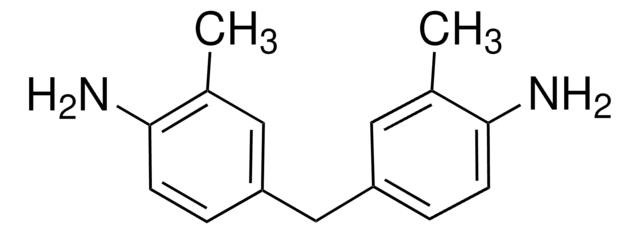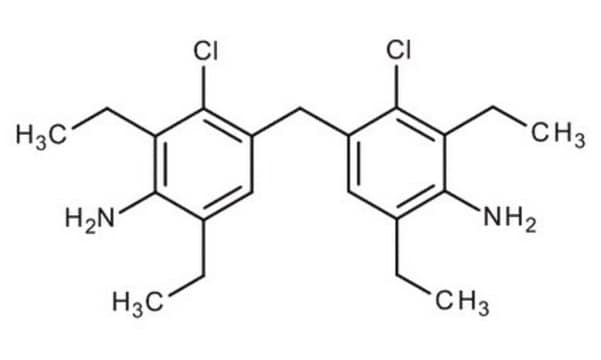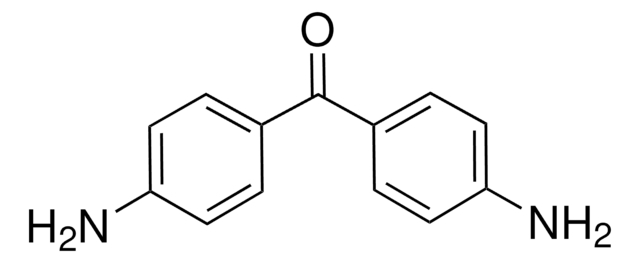117323
4,4′-Methylene-bis(2-chloroaniline)
85%
Synonym(s):
2,2′-Dichloro-4,4′-methylenedianiline, 4,4′-Diamino-3,3′-dichlorodiphenylmethane
About This Item
Recommended Products
Assay
85%
form
solid
bp
202-214 °C/0.3 mmHg (lit.)
mp
102-107 °C (lit.)
SMILES string
Nc1ccc(Cc2ccc(N)c(Cl)c2)cc1Cl
InChI
1S/C13H12Cl2N2/c14-10-6-8(1-3-12(10)16)5-9-2-4-13(17)11(15)7-9/h1-4,6-7H,5,16-17H2
InChI key
IBOFVQJTBBUKMU-UHFFFAOYSA-N
Looking for similar products? Visit Product Comparison Guide
Related Categories
Signal Word
Danger
Hazard Statements
Precautionary Statements
Hazard Classifications
Acute Tox. 4 Oral - Aquatic Acute 1 - Aquatic Chronic 1 - Carc. 1B - Muta. 2
Storage Class Code
6.1C - Combustible acute toxic Cat.3 / toxic compounds or compounds which causing chronic effects
WGK
WGK 3
Flash Point(F)
235.4 °F - closed cup
Flash Point(C)
113 °C - closed cup
Certificates of Analysis (COA)
Search for Certificates of Analysis (COA) by entering the products Lot/Batch Number. Lot and Batch Numbers can be found on a product’s label following the words ‘Lot’ or ‘Batch’.
Already Own This Product?
Find documentation for the products that you have recently purchased in the Document Library.
Customers Also Viewed
Our team of scientists has experience in all areas of research including Life Science, Material Science, Chemical Synthesis, Chromatography, Analytical and many others.
Contact Technical Service











